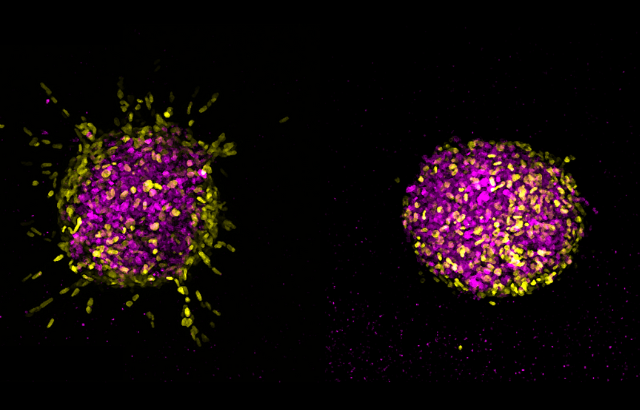Researchers target healthy cells to halt pancreatic cancer invasion
Dr Abigail Coetzee from the Blizard Institute Blizard is named as co-first author of a paper published in Oncogene. She was involved in the research as part of her PhD at Barts Cancer Institute.

3D spheres of cancer cells (shown in purple) and stellate cells (shown in yellow). In untreated conditions (shown in the left panel of the image), stellate cells invade into the surrounding tissue, creating tracks for the cancer cells to follow. When treated with an FGFR inhibitor (shown in the right panel), this invasion is blocked and the cells remain in the central sphere.
Researchers have identified a new channel of communication through which non-cancerous cells drive the invasion of cancer cells in pancreatic cancer. By blocking a particular signalling molecule within this pathway, called Fibroblast Growth Factor Receptor 1 (FGFR1), the team was able to reduce invasion of pancreatic cancer cells in the laboratory.
The findings, published in Oncogene, may pave the way for the development of new treatment approaches for pancreatic cancer that target the cross-talk between cancer cells and their environment.